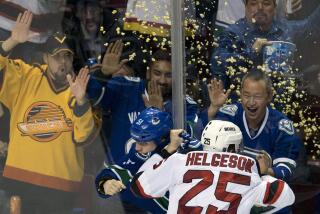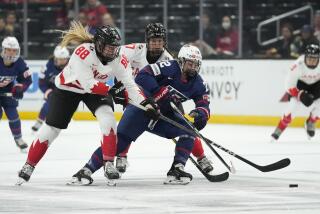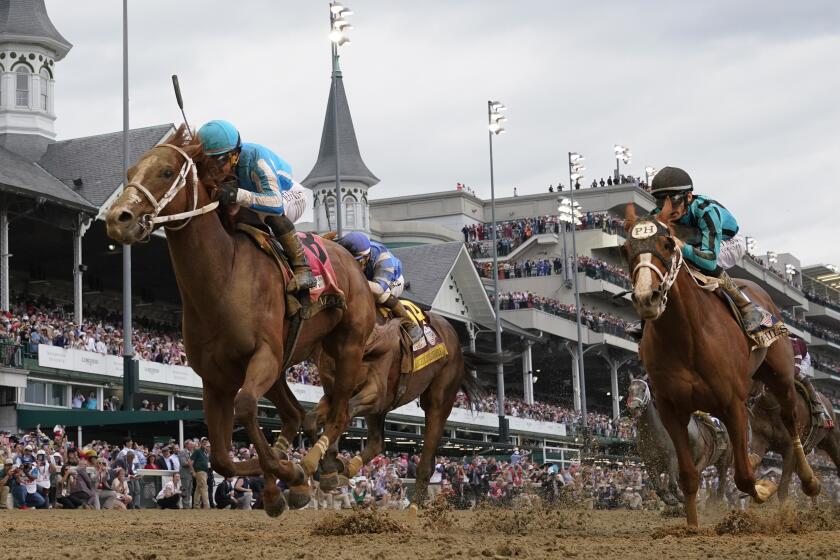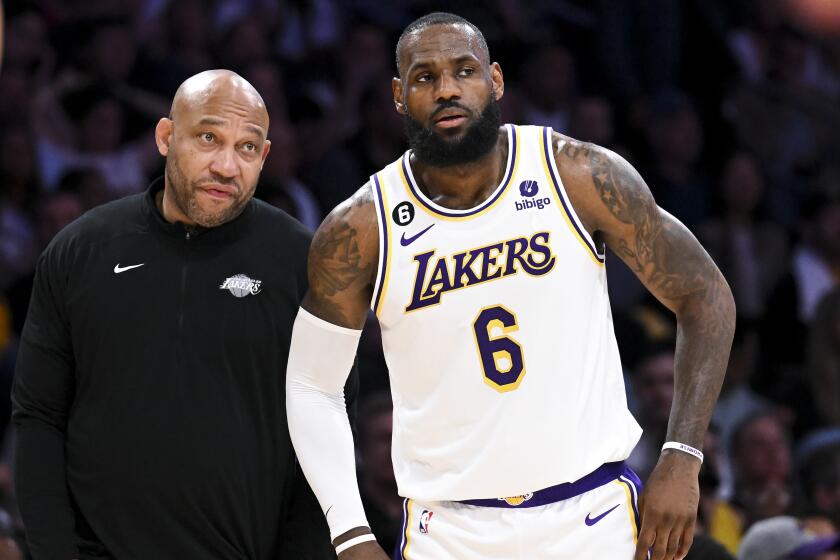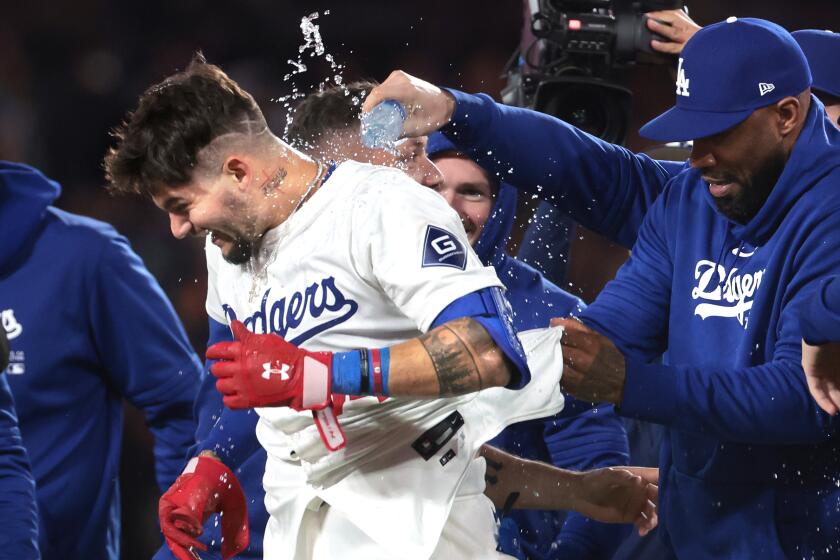There’s no real winner in NHL labor settlement
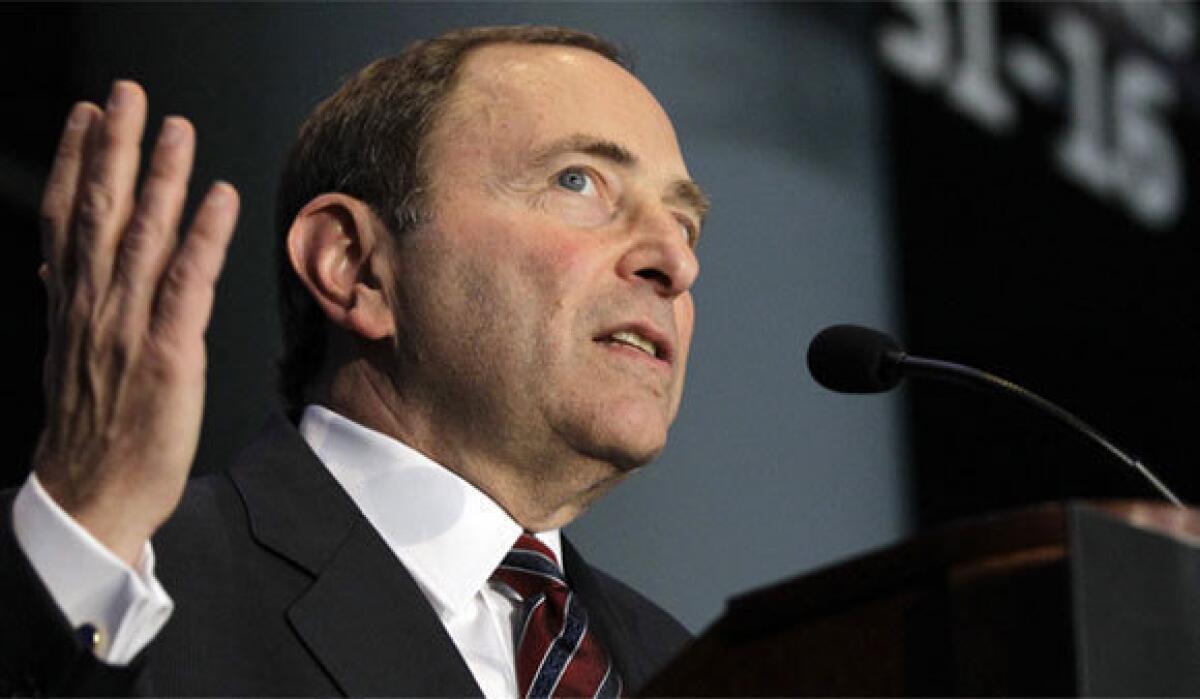
It’s why our games have shootouts, extra innings, overtime or penalty kicks.
Sports fans like to have a clearly defined winner and loser, and they want to pass judgment quickly. Ties have become unacceptable even if a deadlock accurately reflects the performance of both teams on a given day.
The compulsion to declare who won and who lost the labor dispute that led the NHL to cancel the 2004-05 season drove most observers to decree the league had won, a conclusion that made sense at first glance.
The NHL got a salary cap for the first time, entry-level salary restrictions and an array of provisions intended to create “cost certainty.” That imploded when teams realized they could dipsy-doodle around the cap by signing players to absurdly long deals that tailed off dramatically in the later years. Unable to control their own spending, teams asked players to save them from themselves in the latest dispute, which ground to a halt early Sunday when the league and the NHL Players’ Assn. reached a tentative accord on a new collective bargaining agreement.
The urge to designate a winner has already gone viral, with early returns favoring Commissioner Gary Bettman and the NHL as the victors over Donald Fehr and the NHLPA.
“Like most of the recent labor disputes in professional sports, the owners won this tussle,” Patrick Rishe, a professor of economics at Webster University in St. Louis said in a blog post for Forbes.com. “That said, Mr. Fehr showed his mettle as a tough negotiator in that the players ended up retaining far more perks than I ever believed they would.”
Strictly in economic terms, Rishe could be right. But before we start crunching numbers, it’s worth noting the many reasons to say there’s really no winner here.
The team, arena and league employees whose hours and pay were slashed while owners and players argued over billions of dollars aren’t winners. Nor are fans who rightfully became enraged when the NHL locked players out for a third time in 18 years. Will those fans return? Soothing their anger will take much more than painting the treacly words “Thank You Fans” onto the ice, as teams were required to do after the 2004-05 season was lost.
Will the NHL gain more during this deal, financially or otherwise, than it lost through its failure to negotiate a deal that would have preserved a full season and allowed revenue to grow beyond last season’s record $3.3 billion? Was this worth the cost of potentially driving away fans and sponsors?
“Upon review of the key terms of the NHL-NHLPA tentative agreement on a new CBA, one is left to wonder why we lost half a season for this deal,” said Allan Walsh of Octagon Hockey, a prominent agent based in Los Angeles.
“The inescapable conclusion is that Gary Bettman, [counsel] Bob Batterman and some NHL owners were under the mistaken belief that players would crumble under the pressure of another lockout. This miscalculation ultimately cost teams and players hundreds of millions of dollars. The lesson here is simple. When under attack by ownership, players have no choice but to stick together.”
They didn’t fracture even when told by NHL negotiators that a deal couldn’t be made if Fehr was in the room and when they were warned the NHL’s offers would only get worse as time passed, statements that proved false.
The union didn’t want the new labor deal to last 10 years (with an opt-out clause after eight), but sanity prevailed when both sides realized they needed long-term stability. The NHL got players to go from 57% of hockey-related revenue last season to a more realistic 50-50 split, a key triumph.
The NHL backed off capping individual contracts at five years — a point Deputy Commissioner Bill Daly called “the hill we will die on” in early December — and agreed to seven-year limits with an exception of eight years for teams to re-sign their free agents. Each side compromised there, and on the 2013-14 salary cap of $64.3 million.
Players got the solid pension plan they battled for, as well as a maximum 35% variance in the year-to-year value of contracts with a stipulation that the final year can’t be more than 50% less than the highest year. That should eliminate those destructive, front-loaded deals. Players will get $300 million in “make whole” transitional payments, up from the NHL’s first offers. Everyone benefits from the increased $200-million revenue-sharing pool and $60-million growth fund.
“After the 1995 and 2005 CBAs were agreed upon between the parties, most people believed that the NHL scored major concessions from the players. Again, I’m hearing some people declare the NHL the early winner here,” Walsh said.
“I would caution everyone that there are no winners in the short term. However, by Year 4 or 5, I suspect the deal will be considered in a much different light. I have said previously it is not who wins the war that counts so much as who best manages the peace. Don’t underestimate the players in this regard.”
What’s most important now isn’t who won or lost but how well they can coexist.
twitter.com/helenenothelen
More to Read
Get our high school sports newsletter
Prep Rally is devoted to the SoCal high school sports experience, bringing you scores, stories and a behind-the-scenes look at what makes prep sports so popular.
You may occasionally receive promotional content from the Los Angeles Times.
